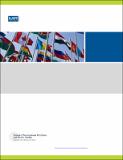| dc.description.abstract |
This article is the first, to our knowledge, to examine the conditions under which strategies of election violence to help incumbent leaders stay in power. We argue that election violence is a costly tradeoff for governments. When used in the pre-election period, including on election day, government election violence against opposition supporters, candidates, and the citizenry increases the probability that the incumbent and his party will win the election. Yet pre-election violence can backfire in the longer term by increasing the probability of post-election protests, which in turn make it more likely that the incumbent will eventually be forced to step down or hold new elections. This effect of protest on leader tenure is not mitigated by the use of violence in the post-election period. Unlike in the pre-election period, where the objective is to manipulate an election outcome, the objective of post-election violence is almost always to undermine an already resolved protest movement. This is inherently a more difficult task. |

